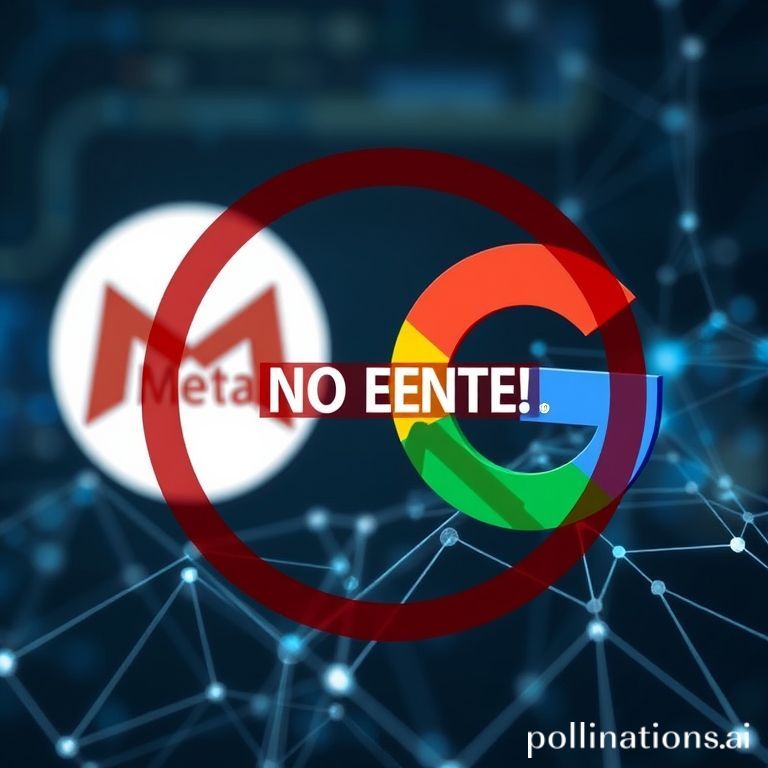
Meta, the social media giant, has vehemently denied a recent media report suggesting it was considering the integration of Google's artificial intelligence (AI) models into its highly lucrative ad business. The company clarified its position, stating that any engagement with Google's AI models is solely for the purpose of benchmarking its own robust, proprietary systems.
The report, published by The Information on Thursday (Sept. 25) and citing unnamed sources, indicated that Meta was exploring the use of Google's AI to enhance its ad recommendation systems. Specifically, it was rumored that Meta sought Google's technology to help summarize advertisements, thereby improving the efficiency and relevance of ad targeting. This speculation hinted at potential "stumbles" or challenges within Meta's internal AI development efforts and suggested a search for an interim solution until its own Llama AI models, developed by the Superintelligence Labs team, could be further refined.
Meta's Unwavering Commitment to Proprietary AI
A spokesperson for Meta, in response to inquiries, underscored the company's long-standing philosophy. "We've always built our own industry-leading, proprietary ad targeting and recommendation systems," the spokesperson stated via email. This assertion emphasizes Meta's strategic independence and its deep investment in developing in-house technological capabilities that form the bedrock of its advertising revenue.
The concept of benchmarking is a standard practice within the technology industry. It involves comparing the performance of one's own products, processes, or services against those of leading competitors or industry best practices. For Meta, utilizing Google's models for benchmarking allows them to evaluate the strengths and weaknesses of their own AI systems, identify areas for improvement, and ensure they remain at the forefront of ad technology. This process is distinct from actively integrating a competitor's core technology into one's fundamental business operations.
Zuckerberg's Vision: Superintelligence and Ad Efficiency
Meta's commitment to AI is not new; it has been a central theme in CEO Mark Zuckerberg's strategic outlook. During an earnings call on July 30, Zuckerberg highlighted AI as a transformative force already impacting the company's products. He noted that new recommendation models powered by AI had led to a significant increase in ad conversions, reporting a 5% rise on Instagram and a 3% increase on Facebook during the quarter.
Zuckerberg also articulated an ambitious long-term vision for "superintelligence," which he defines as AI surpassing human intelligence in every aspect. He expressed optimism, observing "glimpses of our AI systems improving themselves," signaling a gradual yet undeniable progression toward this lofty goal. This forward-looking perspective underpins Meta's substantial investments in AI research and development.
Investment and Recruitment in the AI Frontier
The company has not shied away from significant capital expenditure and talent acquisition in its pursuit of AI excellence. It was widely reported in June that Meta plans to leverage generative AI to automate ad creation and targeting by the end of 2026, a critical element of Zuckerberg's strategy to maintain advertising as the primary revenue driver. Throughout the summer, Meta embarked on a massive recruitment drive, aggressively hiring top-tier AI professionals and, in some instances, offering highly competitive, nine-figure compensation packages to attract the best talent in the field.
The denial by Meta reaffirms its strategic position in the intensely competitive AI landscape. While open to benchmarking, the company's core ad business, a critical component of its financial success, remains firmly rooted in its proprietary AI advancements. This strategic choice underscores the importance of technological autonomy for major tech players, especially concerning core revenue-generating platforms. As the race for AI dominance continues, Meta appears determined to chart its own course, guided by its in-house innovations and Zuckerberg's expansive vision for artificial intelligence.
